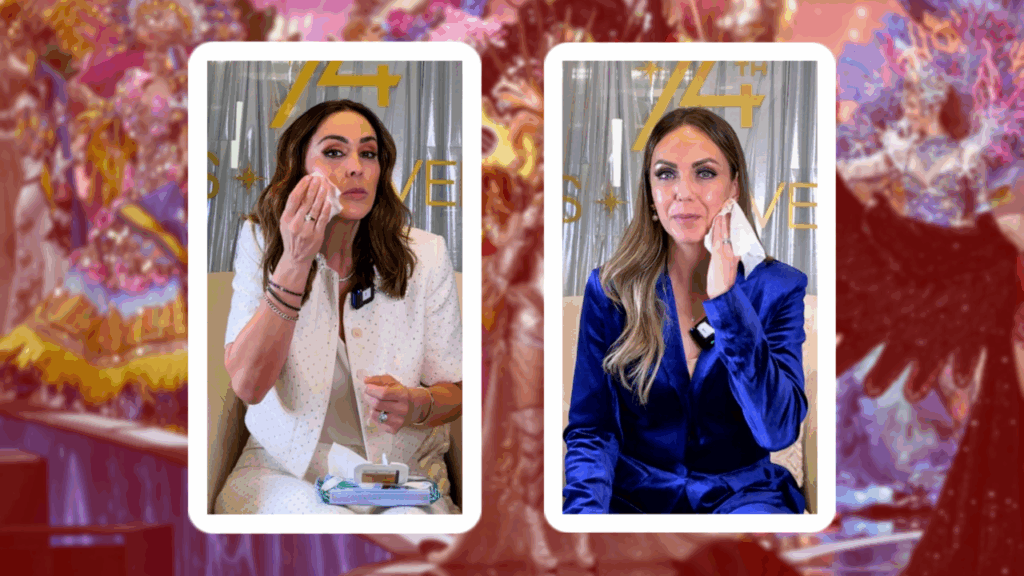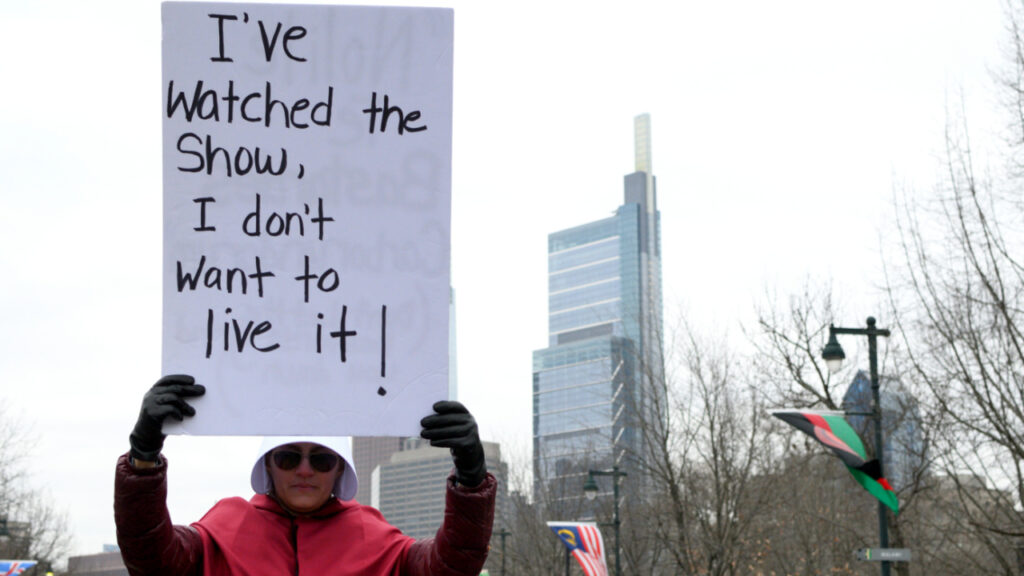
After Miss Mexico Walked Out, “Baring It All” Shows What Miss Universe Can Be at Its Best
For many of us, the first time we saw a “perfect” woman, she wore a sash. Miss México. Miss Puerto Rico. Miss Venezuela. A stage full of women introduced as “the most beautiful” their countries could offer.
You sat on the couch while your mom pointed out the gowns, the hair, and the walk. You absorbed a geometry of beauty made of measurements, scores, and a crown. You also felt something else. The split between admiration and unease. Between “I want to be her” and “do we really have to look like this?”
That tension resurfaced with force this year.
When Miss México Walked Out and the Room Shifted
During a livestreamed confrontation in Bangkok, Miss Universe senior executive Nawat Itsaragrisil called Miss México Fátima Bosch “dumb” in front of the audience. She then walked out in what felt less like pageant drama and more like a labor action.
She said, “We are empowered women, and this is a platform for our voice, and no one can shut our voice. No one will do that to me.”
The clip traveled fast. Delegates followed her out. Fans called it “the most empowering act in Miss Universe history.” And the moment forced the pageant to look at itself in real time.
Two weeks later, FIERCE sat down with Miss Universe host and former Miss México Jacky Bracamontes, alongside presenter Jessica Carrillo, for our “Baring it All” series. The stakes felt different. Could a pageant built on spectacle sit still long enough to talk about fear, failure, and what it means to take the makeup off while the cameras stay on?
According to Telemundo, the network plans a week of Miss Universe coverage, including the special “Celebrando Nuestras Reinas,” which highlights “las cualidades humanas, los sueños y la misión de vida” of contestants from Latin America and Spain. The Miss Universe Organization describes itself as “a global and inclusive organization that celebrates all cultures, backgrounds, and religions.”
The question now is whether the stage can hold the weight of those words.
The Beauty Standard That Raised Us
For decades, Miss Universe functioned like a televised sermon about beauty. Countries sent one woman, and viewers at home received her as a signal. This is what pride looks like. This is what a waist should look like. This is how you answer a question about world peace while someone times you.
You could love it and still feel something claw at you. The suspicion that the architecture rested on how well a woman looked under fluorescent light. The sense that the standard lived in your body long after the show ended.
Bracamontes knows that weight. She competed as Miss México in 2001. When we asked what she hears when someone says “beauty,” she did not talk about herself.
“The first thing that I think about when I hear the word beauty is my mom; she’s beautiful. Inside and out,” she said. “She’s taught me everything I know, and I’m so thankful. She’s kept me… grounded and down to earth.”
For Jessica Carrillo, who has decades of experience in front of cameras, beauty is about “showing ourselves as we are.” She added that beauty lies in “how we treat others, and how we express ourselves.”
Inside the Pageant’s Mirror, According to Its Hosts
This year’s competition brings together 120 women from around the world and 20 contestants from Latin America and Spain. The broadcast frames them as cultural ambassadors and potential leaders. It also reminds viewers that Miss Universe crowns a single winner in a show “full of music, shine and emotion.”
Jacky knows that equation well. She stood on the stage as a contestant. She has now hosted the show seven times for Telemundo.
“At Miss Universe, what they look for is a beautiful woman. With a beautiful soul and someone who speaks up. Someone who, when she travels the world, makes women proud,” she told us.
Jessica sees the same dynamic. “This is not only a platform for beauty,” she said. “It’s [also] a platform for people’s intelligence and inner beauty.”
Both women believe the essence of the event persists.
“Maybe the rule changes, maybe the owners change, but the essence of Miss Universe is always the same,” Jacky said.
Jessica added, “Today, these pageants are a springboard for many women who are looking to stand out in certain fields.”
But the world around them changed. Viewers watch with a screen in one hand and a feed in the other. When Itsaragrisil called Miss México “dumb,” the clip traveled faster than any official statement. The walkout turned the pageant into a referendum on power.
“I think this edition has shown that when women unite, we are stronger and more powerful,” Jessica said. “How our women unite when they see injustice towards one of them or when they feel that another is not being treated as she should be… When they unite and stand together for women’s rights, that is when they become more powerful individually.”
“Baring it All” Lets Miss Universe Contestants Sit With Their Reflection
In that context, “Baring it All” brings the vulnerability we have always longed for. The premise is simple: Women who live under high wattage sit under softer light. They remove their makeup on camera. They answer questions about beauty, failure, and voice.
Jacky keeps her humor close.
“Oh my God. First time I do this, I’m so nervous and excited,” she said at the start. “It’s gonna be amazing.”
Then the wipes come out, the mascara smears, and the camera holds the vulnerability. The format does something the stage never had room to do: It lets silence breathe. It shows how hard it feels to speak from the heart in a second language.
In a universe that sells confidence as a finished product, this version of vulnerability feels rare. It also feels closer to the women who watch. The ones who switch between Spanish and English mid-sentence and then apologize for it.
According to the Miss Universe Organization, the platform exists so women can “share their stories and have a personal, professional and philanthropic impact.” The women in “Baring it All” do that with their eyeliner half gone.
What Failure Looks Like When the Crown Slips
Jacky remembers the year she competed like a campfire story.
“It was in Puerto Rico. We were like 83 contestants, if I’m not wrong, and I had the best time of my life,” she said. “I felt so proud representing México and so happy to know all these beautiful women who were raised differently than me.”
Then the tone shifts.
“When everybody asks me, ‘Oh, what place were you in Miss Universe?’ I was, I was 11 ‘cause I didn’t make it to the top 10,” she said. “It broke my heart at that moment. When I wasn’t part of the top 10, I cried a lot that night, but the next morning when I woke up, I was like, okay… Miss Universe wasn’t meant for me.”
She connected that moment to everything that came after: Hosting. Acting. A public career built from a loss that rerouted her life.
Now, when she walks on stage, she carries different eyes on her.
“I have five daughters, and I want to be an example for them. I wanna be an example for them as a woman who can do everything she wants in life,” she said.
Jessica feels the same weight. “Whenever I am on stage… I always think of all those women who want to see themselves represented… I want to represent our Latino community, which is coming together at this moment.”
The time of “calladita te ves más bonita” is over, even for Miss Universe (Miss Universe)
While Jacky and Jessica spoke with us, the Miss México story kept moving through feeds like a warning flare. It became impossible to separate their words from what happened in Bangkok. When Fátima Bosch walked out after being called “dumb” by a Miss Universe executive, the moment landed with a clarity that felt cultural. The era of “calladita te ves más bonita” collapsed in real time.
Both women had something to say about that phrase. Jacky didn’t hesitate. “That’s not true. That’s not true,” she said. “And I don’t want my girls to even hear about that phrase. We women, we were born to be happy.” She spoke of joy as resistance. “I don’t care the way you look, if you smile, you’re beautiful… When you have good energy, when you enjoy life, you can show it to everybody… it gets contagious.”
She spoke as a mother. “I was born to be a mom… and to be an example. So what I wanna tell them is to be secure in what they are. They’re beautiful the way they are.” Jacky believes girls who grow up knowing they are loved will never obey a phrase meant to silence them. “When something happens that you don’t feel comfortable [with]… You have to speak up. Always.”
Jessica carried the sentiment forward. “I think those days are over,” she told us. “The saying ‘You look prettier when you’re quiet’ no longer reflects the world we live in today. On the contrary, if you stay quiet, you won’t become the woman you want to be… the saying ‘You look prettier when you’re quiet’ no longer exists.”
This year’s show will go live from Bangkok on November 20 at 7 p.m. ET with Jacqueline Bracamontes, Danilo Carrera, Carlos Adyan, and Jessica Carrillo as hosts. Former Miss Universe Andrea Meza will serve on the selection committee. The live broadcast will stream on Telemundo, Peacock, and the Telemundo app, with English subtitles available through Closed Captioning.




